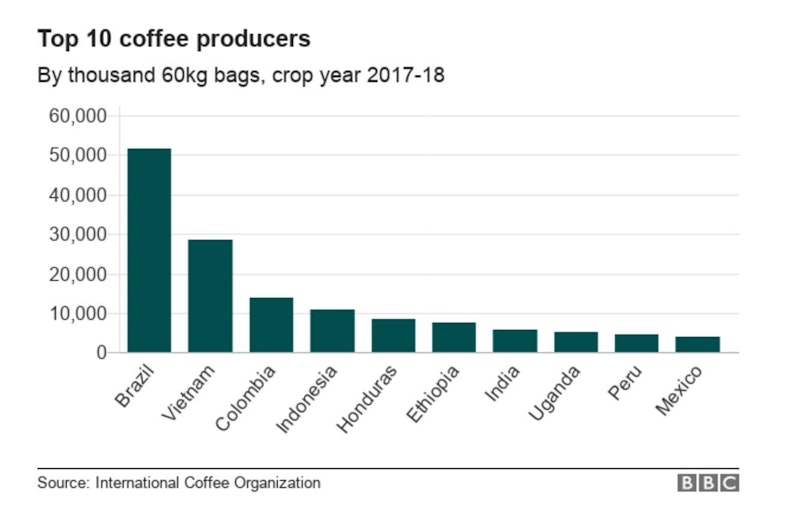In the News
Coffee in the news - discrimination, recycling and market trends
18th April 2018
Starbucks is hitting the headlines today, with the announcement that they will close more than 8,000 company-owned branches in the US for an afternoon next month to carry out "racial bias" training. It comes after the firm had to apologise over last week's arrest of two black men who were waiting to meet someone in a Starbucks in Philadelphia. This move is estimated to cost them $20m in lost sales, which may be far cheaper than the potential damage to their revenues from the incident, if they don't deal with it quickly and well. Their plan is to develop a 'curriculum' for all 175,000 current staff, and future new recruits, which has been developed with the help of civil rights leaders and officials including former US Attorney General Eric Holder. They will also make it available to other companies, and in a joint statement with the lawyer representing the two arrested men, Starbucks apologised on behalf of the company and said the conversation was continuing about how this "painful incident can become a vehicle for positive social change".
Costa, meanwhile, has said that in the UK it will recycle as many disposable cups as it sells by 2020 in a bid to reduce landfill waste. About 2.5bn disposable coffee cups are thrown away each year in the UK, and almost all - 99.75% - are not recycled. Although Costa have collection points for the used cups in their stores, most coffees are consumed elsewhere, so the scheme will encourage waste collection firms to collect the cups from offices and elsewhere, by paying them a supplement of £75 per tonne. Five waste collection firms have been involved in developing the new scheme, Veolia, Biffa, Suez, Grundon and First Mile, and as a result, 500m coffee cups a year could be recycled, including some sold by rivals.
And finally in a report "Coffee: Who grows, drinks and pays the most?", the BBC tells us that Brazil is easily the world's biggest producer of coffee, although some of the other major suppliers, such as Honduras, it is a much more significant part of their economy, and one their major exports. There is some useful comment on Fairtrade schemes in the report as well: for example, more than 125 million people around the world depend on coffee for their livelihoods, with around 25 million smallholder farms producing 80% of the world's coffee. And while some critics argue that the scheme is expensive for farmers to join, and that encouraging coffee production with a cash incentive could also lead to too much coffee being produced, driving down prices, Louisa Cox, director of impact at the Fairtrade Foundation, said that being fairtrade-certified also means that farmers can access training, safety equipment and protection.

When it comes to coffee consumption, Nordic countries leads the world, with the UK coming well behind Finland's annual 12.5kg per capita, with only 3kg. On the other hand, we lead the way in coffee prices. In 2016, we paid £11.45 per pound for our caffeine fix; in Poland, it cost only £2.23.
There is some more useful data here, about the favourite brands in Europe and in the US, and then about the UK's preferred style of coffee. Latte is the most popular, with more than 930 million sold in the year to 25 February 2018. Cappuccinos followed at 800 million, and in total we spent £6.3bn on coffee in the year to 25 February 2018, compared (in 2017) to only £1.5bn on tea.
You might also like
Marketing Mix: Promotion (Revision Presentation)
Teaching PowerPoints
Promotional Decisions
Study Notes

Starbucks Strategy: "Growth is Not a Strategy"
11th April 2016

Legal Environment: Starbucks Customer Claim Gets An Icy Reception
25th August 2016

Ansoff Matrix - Starbucks launches olive-oil infused coffees in Italy
23rd February 2023